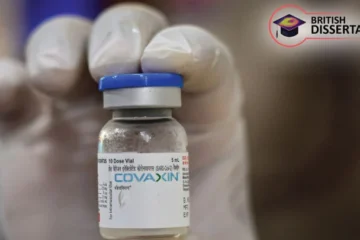Is Natwest Money laundering a reality?
Introduction
It was unexpected! But yes, Natwest agreed to the fact that they allowed a jeweller to loan £365m sums of money, and the case of money laundering followed. It was honestly a bolt from the blue because Natwest is a high street moneylender having massive shares of public money involved. About 55% of the concern is tax-payer owned. This happened after the £45 billion state bailout at the time of the financial crisis.
What happened?
NatWest did not check the bank account details of the Bradford-based jeweller, Fowler Oldfield Ltd. They should have been careful and meticulously checked the ins and outs. However, the mishap happened between November 7, 2013, and June 23, 2016. Back in 2016, a police raid prompted the shutting down of Fowler Oldfield.
Natwest was right to predict that the Bradford-based Jeweler would be able to yield a turnover of £15m per annum. But, what it did not do is, monitor the jeweller. The bank kept paying around £365m into the jeweler’s bank account over a period of five years, without checking the details. To top it all £264m was given to the jeweler in cash.
The bank is liable for three offences falling under the category of the Money Laundering Regulations 2007. It did not sufficiently check the customer’s account details between 2012 and 2016. Hence, the trial will be held at Westminster Magistrates’ Court.
This is the first-ever criminal prosecution under the 2007 law carried out by the FCA.
The fate of the bank
The bank might have to go through a stringent process and have to pay a total fine of £340m, falling in the category of sentencing guidelines. Alison Rose, the NatWest chief executive, stated, “We deeply regret that NatWest failed to adequately monitor and therefore prevent money laundering by one of our customers between 2012 and 2016.” Furthermore, she stated that they have been trying their best to protect the public money from being laundered by uncouth businessmen. Financial crime is a problem, and they have enhanced their systems to scrutinize before lending money to anybody so that any third party concerned cannot misuse the money. Coming forward, the executive said, “We work tirelessly with colleagues, other banks, industry bodies, law enforcement, regulators, and governments to help find collaborative solutions to this shared challenge. These partnerships are crucial to counter the significant and evolving threat of financial crime to society.”
A little about Fowler Oldfield
Fowler Oldfield had been operating in the jewellery business for more than a century. It was immediately shut down after a police raid was conducted back in 2016. The jewellery shop was the hub of a multimillion-pound money laundering activity. It was regarded as a fraudulent institution based on the crown court proceedings.
The FCA prosecutor Clare Montgomery QC said, “The turnover of Fowler Oldfield was predicted to be £15m per annum. It was agreed that the bank would not handle cash deposits. However, it deposited £365m, with around £264m in cash.” Furthermore, Fowler Oldfield deposited up to £1.8m every day when it was at its peak of performing spectacularly.
About the sentencing, The sentencing of the bank, Natwest, is scheduled to take place at the Southwark crown court on the 8th of December or before the 8th of December. The FCA is not interested in taking any legal step against the bank employees (current or former). The bank, on the other hand, did not expect any other authority to take the investigation forward for such faulty conduct. Failing to check the client’s credentials before lending a massive amount is a pretty grave mishap, and it is entirely not expected of a bank of such repute to fail on such a fundamental step. This trivial mistake got skeptics thinking about the role of the bank in the money laundering activity.



















